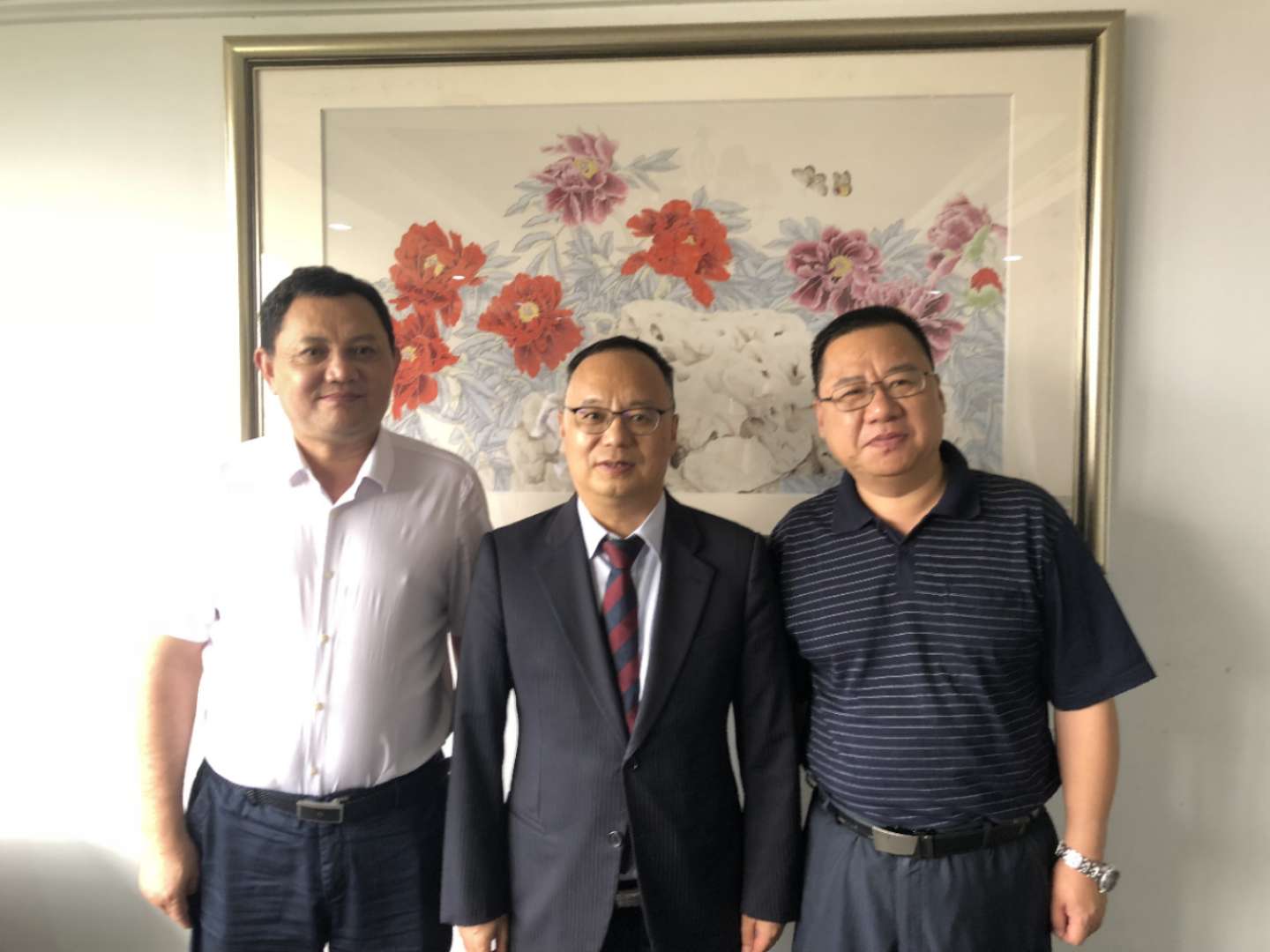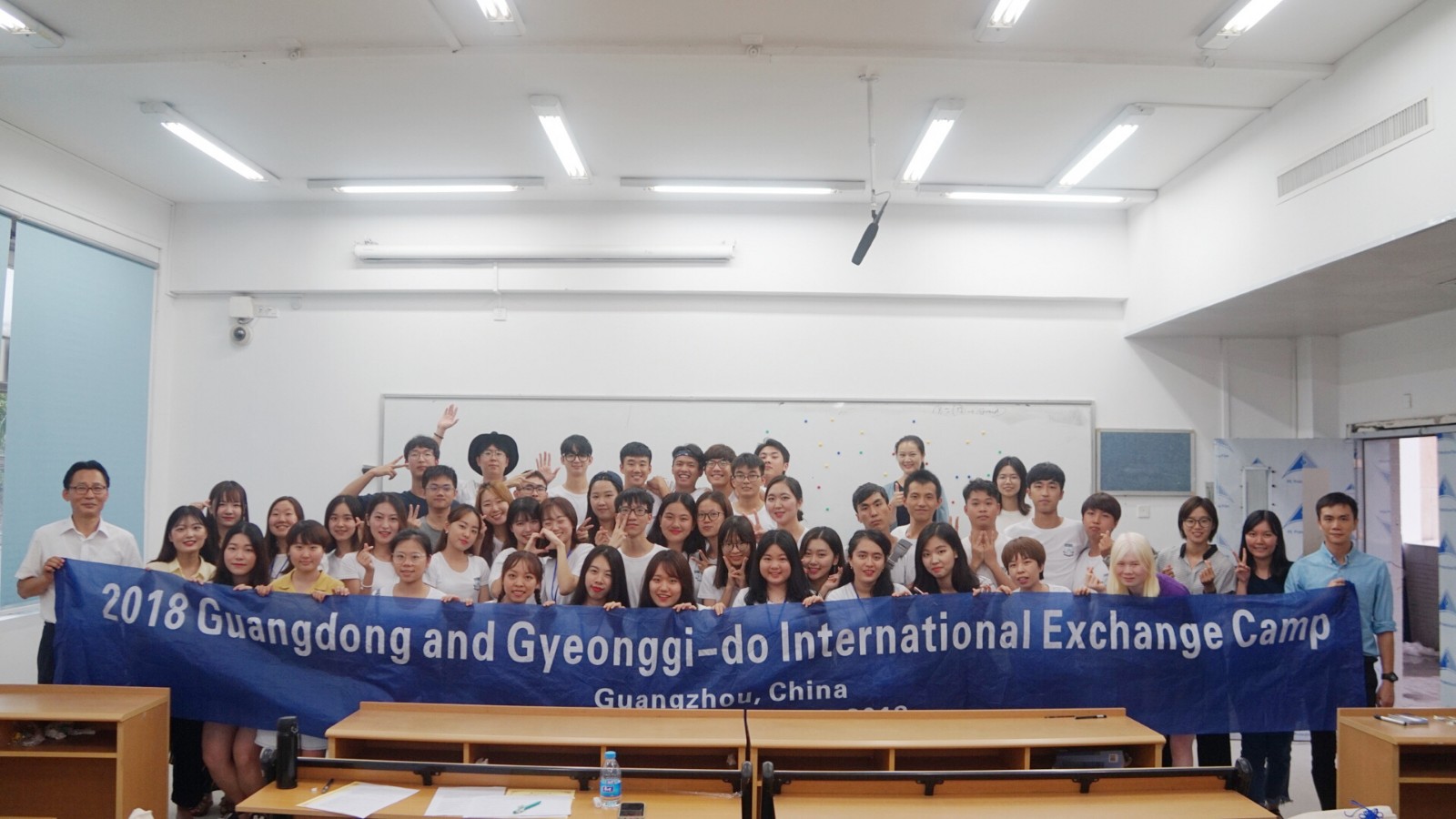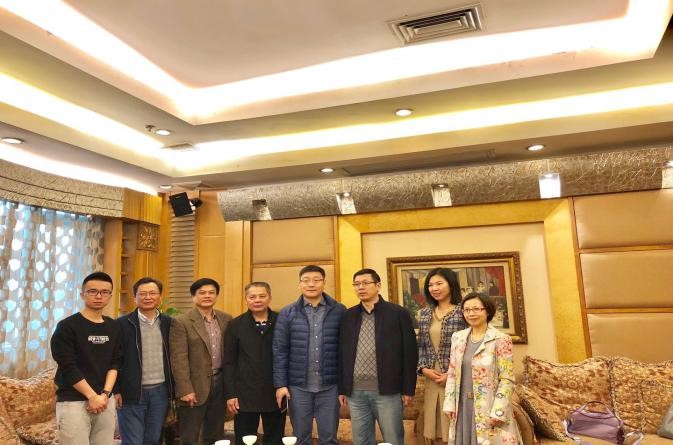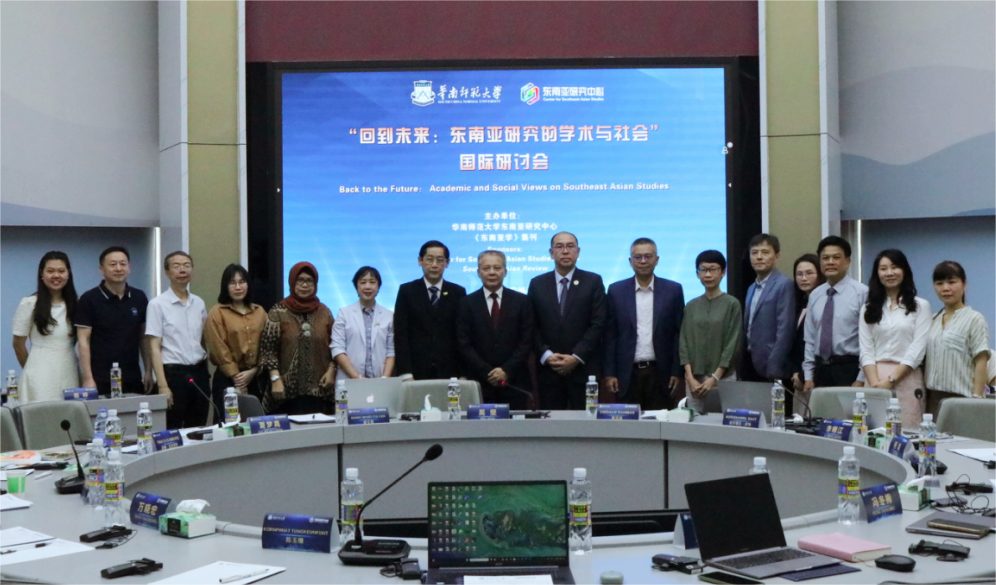
Likes
An international seminar, themed "Back to the Future: Academic and Social Views on Southeast Asian Studies", was held at the Center for Southeast Asian Studies, SCNU on June 22. With a mission to promote in-depth dialogue and communication on Southeast Asian studies, it brought together experts to discuss the construction of Southeast Asian studies and Southeast Asian regional-country studies centering on the current research trend in Southeast Asian Studies.
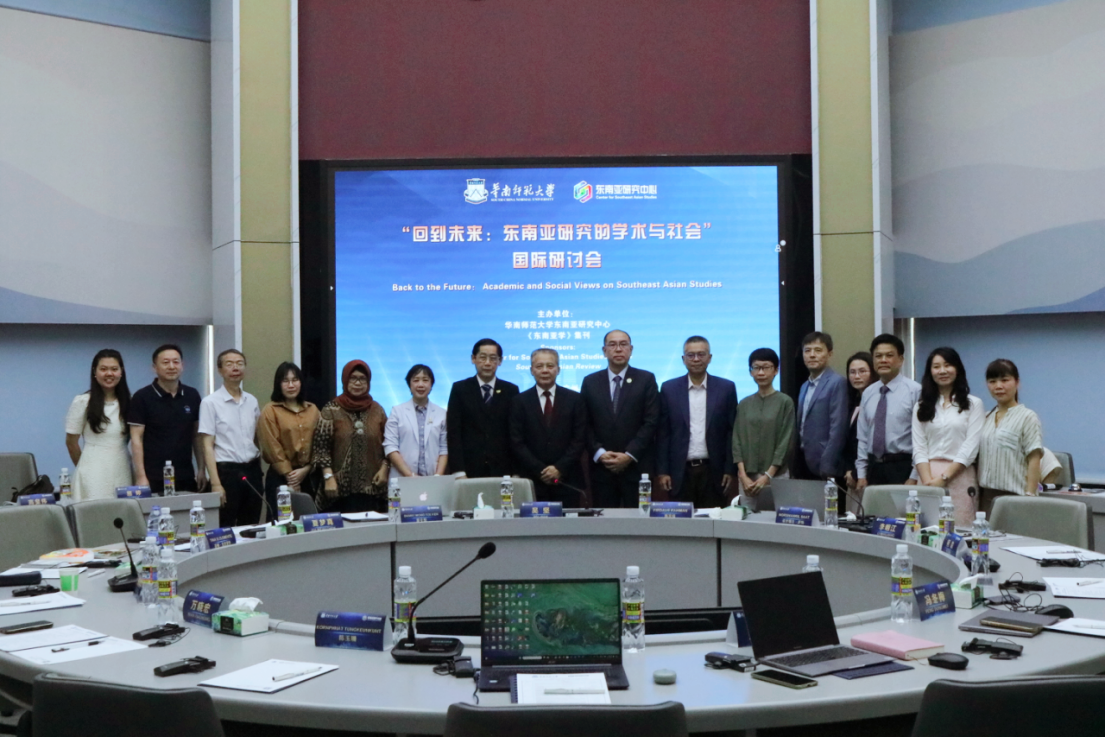
A group photo of participants.
Wu Jian, vice president of SCNU, and director of the Center for Southeast Asian Studies, pointed out SCNU has established a cross-disciplinary platform focusing on "Southeast Asian Studies" for academic and professional expansion, which is committed to studying Southeast Asian issues from an inclusive interdisciplinary perspective. Moreover, the university has developed distinctive research strengths in various fields such as international comparative education, international Chinese education, geography, overseas Chinese studies, history, and international law, thereby charting a unique path in Southeast Asian studies. Wu also delivered a speech on "The Agenda for Chinese Southeast Asian Studies."
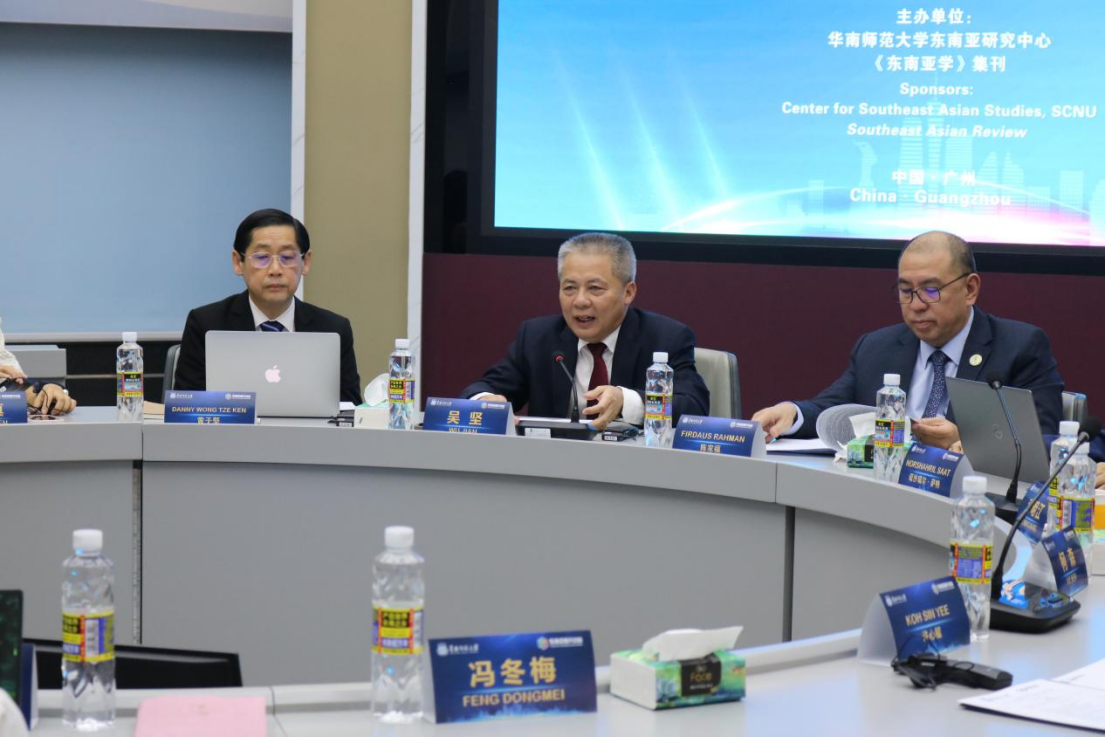
Wu Jian (Middle), vice president of SCNU, and director of the Center for Southeast Asian Studies makes a speech at the opening ceremony.
Scholars at home and abroad including countries Thailand, Indonesia, Malaysia, the Philippines, Brunei, Singapore, and Vietnam had a lively discussion about the development of "Southeast Asian Studies". Danny Wong Tze Ken, Professor and Dean of the Faculty of Arts and Social Sciences at the University of Malaya, took the attendees on a journey to reflect on how Southeast Asian Studies took shape and evolved in Malaysia. Professor Tina S. Clemente of the Asian Studies Center of the University of the Philippines-Diliman reimagined the interdisciplinary nature of Southeast Asian studies, focusing on context, connectivity, and diversity. She emphasized regional economic history and Chinese studies as entry points and shared experiences in interdisciplinary Southeast Asian research. Norshahril Saat, Senior Fellow & Coordinator of the Regional Social and Cultural Studies Program of ISEAS-Yusof Ishak Institute, focused on multiculturalism in maritime Southeast Asia. Assistant Professor Apiradee Charoensenee, director of the Department of Chinese, Faculty of Arts of Chulalongkorn University, and Assistant Professor Kornphnat Tungkeunkunt of History Department of Thammasat University's Faculty of Liberal Arts outlined the main lineages and achievements in Thai Southeast Asian studies, offering new insights into contemporary Thai Southeast Asian research.
Later, Firdaus Rahman, President of the Brunei-China Friendship Association, and Đặng Hoang Mai, Director of the Institute for Policy and Strategy, Ministry of Industrial and Trade of the Socialist Republic of Vietnam, respectively reviewed and forecasted regional and bilateral relations. Associate Professor, Provost Chair of the S. Rajaratnam School of International Studies of Nanyang Technological University and Visiting Professor of Xiamen University, Li Mingjiang, analyzed strategic motivations, possibilities, and impacts of ASEAN's Asia-Pacific multilateral security mechanisms, and proposed China's response strategies. Professor Chen Yiping from the School of International Studies of Jinan University analyzed the impact of external factors on China's relations with Southeast Asia and the inherent trends in international relations.
Nurul Isnaeni, Deputy Dean of Education, Research, and Student Affairs of the University of Indonesia, also analyzed the primary challenges and feasible solutions for youth-leading sustainable urban development under the green "Belt and Road" initiative. Koh Sin Yee, Senior Assistant Professor of the Asian Studies Institute of University Brunei Darussalam, introduced her experiences and achievements related to student mobility between China and ASEAN under the Belt and Road framework, Chinese universities' overseas branches, and China's urban development within a globalized perspective.
"We hope to gain a more intuitive and profound understanding of the cutting-edge dynamics and directions in international Southeast Asian studies given the thirst for new knowledge in China-focused regional studies. Also, we aim to convey the voice of China's Southeast Asian studies to our peers, collectively advancing the renewal of knowledge." Vice Dean Wan Xiaohong of the School of Politics and Public Administration summarized at the end of the meeting.
Source from SCNU News Center
Translated by Wan Wenhui, Tang Jingyue
Proofread by Edwin Baak
Edited by Li Jianru
What to read next:



